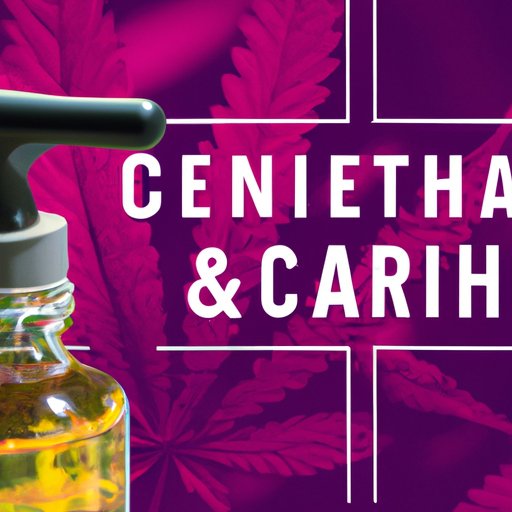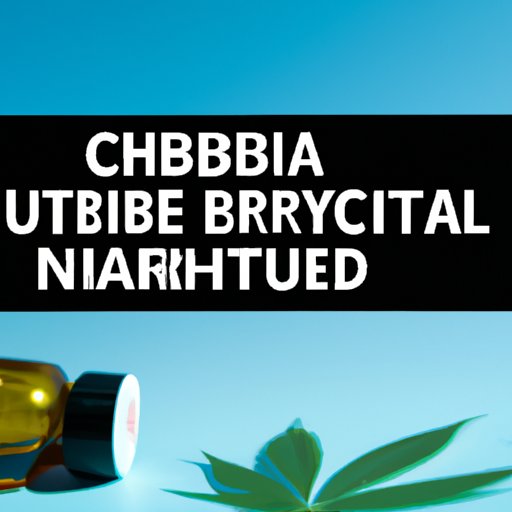Is CBD Legal in NC? Navigating the Complexities of Hemp-Derived Products in North Carolina
CBD, or cannabidiol, is a compound found in the hemp plant that has grown increasingly popular in recent years due to its potential health benefits. With the growing market for CBD products, including oils, creams, and edibles, many North Carolina residents are wondering whether these hemp-derived products are legal in the state. However, the legal landscape of CBD in North Carolina is complex and confusing, with federal and state regulations often in conflict with one another.

The Complexities of CBD Legalization in North Carolina: What You Need to Know
The legal issues surrounding CBD in North Carolina are multifaceted. While the 2018 Farm Bill effectively legalized hemp and hemp-derived products on a federal level, state-level regulations in North Carolina are often in conflict with federal law. Additionally, the legal status of CBD depends on the type of product, its source, and its intended use.
CBD can be derived from both hemp and marijuana plants, with the former containing only trace amounts of THC, the psychoactive compound found in marijuana that produces a “high.” Hemp-derived CBD products containing less than 0.3% THC are federally legal, but marijuana-derived CBD products are still illegal under federal law.
Despite the 2018 Farm Bill, however, North Carolina has not yet established a comprehensive regulatory framework for hemp-derived products, leaving many in the industry operating in a grey area. As a result, there is still a significant lack of clarity and uniformity in the state’s CBD laws.

Exploring the Legal Landscape of CBD in North Carolina
The legalization of CBD in North Carolina has been a gradual process. In 2014, the state passed Senate Bill 313, known as the North Carolina Industrial Hemp Pilot Program, which allowed for the cultivation and marketing of industrial hemp for research purposes. This laid the groundwork for future legalization efforts.
The following year, in 2015, House Bill 766 authorized the use of hemp extract for the treatment of seizure disorders, paving the way for the use of CBD for medical purposes. While this was a positive step for CBD legalization in North Carolina, it left much to be desired in terms of comprehensive regulatory oversight.
Since then, there have been several legislative efforts aimed at clarifying the legal status of CBD in the state. In 2019, Senate Bill 315 passed, creating the North Carolina Hemp Program and providing greater regulatory oversight for the cultivation, processing, and sale of hemp and hemp-derived products. However, this bill did little to address the legality of CBD itself and left many questions unanswered.
The Growing Acceptance of CBD in North Carolina: Is it Legal or Not?
Despite the legal complexities surrounding CBD in North Carolina, the use of hemp-derived products has grown increasingly popular in the state. This is due in part to the increasing public acceptance of CBD as a natural remedy for a wide range of conditions, including anxiety, depression, and chronic pain.
Public opinion has played a significant role in influencing CBD legislation in North Carolina. As more and more people turn to CBD for its potential health benefits, lawmakers are beginning to take notice and take steps to clarify the legal status of these products.
Currently, hemp-derived CBD is legal on a federal level as long as it contains no more than 0.3% THC. In North Carolina, hemp-derived CBD is also legal, but its regulation varies depending on its intended use. For example, CBD intended for human consumption must meet certain labeling and testing requirements, while CBD intended for animal use falls under a separate set of regulations.
NC Residents: The Current State of CBD Law and How It Affects You
For North Carolina residents interested in using CBD for its potential health benefits, it’s important to understand the legal landscape in the state and the potential risks associated with using these products.
While hemp-derived CBD is legal in North Carolina, its regulation is still in flux. There is no guarantee of the quality or safety of CBD products sold in the state, as there is a lack of uniform testing and labeling requirements. Additionally, while the state has not taken an aggressive stance against CBD users, possession of non-hemp-derived CBD products (e.g. marijuana-derived products) is still illegal in North Carolina.

Navigating the Complex World of CBD Legalization in North Carolina
As the hemp market continues to grow and evolve, navigating the complex world of CBD legalization in North Carolina can be overwhelming. However, there are steps that consumers can take to make informed decisions about the products they choose to use.
First and foremost, it’s important to do your research when shopping for CBD products. Look for reputable companies that have established themselves as trusted providers of high-quality CBD products. Additionally, pay attention to product labeling and seek out third-party lab testing results to ensure that the product contains the advertised amount of CBD and is free of harmful contaminants.
It’s also important to stay up-to-date on any legislative developments related to CBD in North Carolina. As the legal landscape changes, consumers will need to be aware of any new regulations or restrictions on the sale and use of these products.
Conclusion
The legal status of CBD in North Carolina is a complex and ever-evolving issue. While the federal legalization of hemp and hemp-derived products was a significant step forward, state-level regulations and lack of comprehensive oversight have left many questions unanswered and regulatory gaps unfilled.
As North Carolina continues to grapple with the complexities of CBD legalization, it’s important for residents to stay informed and engaged with any legislative developments that may affect their ability to access these products.
By taking a proactive approach to their CBD use, consumers can make informed decisions and ensure their safety and well-being while enjoying the potential health benefits of these natural remedies.
